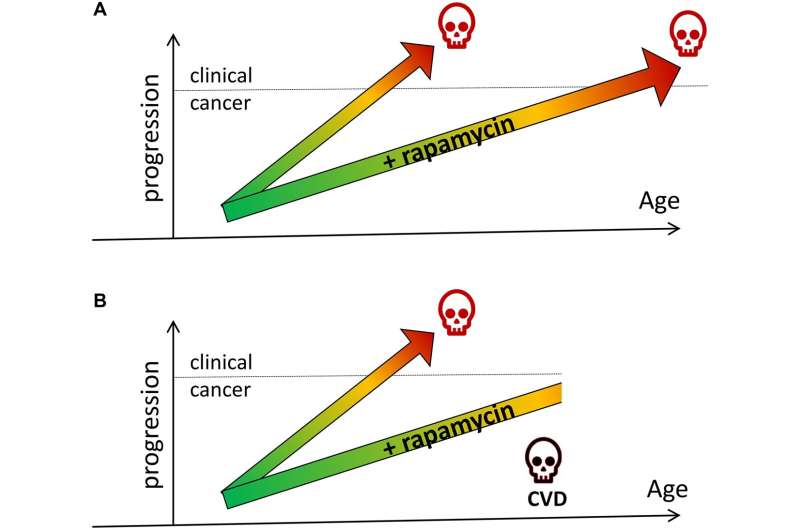This article has been reviewed according to Science X's editorial process and policies. Editors have highlighted the following attributes while ensuring the content's credibility:
fact-checked
peer-reviewed publication
proofread
Research perspective: Cancer prevention with rapamycin

A new research perspective was published in Oncotarget entitled "Cancer prevention with rapamycin."
The mTOR (Target of Rapamycin) pathway is involved in both cancer and aging. Furthermore, common cancers are age-related diseases, and their incidence increases exponentially with age. In his new research perspective, Mikhail V. Blagosklonny, M.D., Ph.D., from Roswell Park Comprehensive Cancer Center discusses rapamycin and other rapalogs and their potential to delay cancer by targeting pre-cancerous cells and slowing down organismal aging.
"Rapamycin (sirolimus) and other rapalogs (everolimus) are anti-cancer and anti-aging drugs, which delay cancer by directly targeting pre-cancerous cells and, indirectly, by slowing down organism aging," state the researchers.
Cancer is an age-related disease and, figuratively, by slowing down time (and aging), rapamycin may delay cancer. In several dozen murine models, rapamycin robustly and reproducibly prevents cancer. Rapamycin slows cell proliferation and tumor progression, thus delaying the onset of cancer in carcinogen-treated, genetically cancer-prone and normal mice.
Data on the use of rapamycin and everolimus in organ-transplant patients are consistent with their cancer-preventive effects. Treatment with rapamycin was proposed to prevent lung cancer in smokers and former smokers. Clinical trials in high-risk populations are warranted.
"Currently, an increasing number of healthy people use rapamycin off-label to slow down aging. Perhaps in ten or twenty years from now, data will accumulate for retrospective analysis of cancer-prevention with rapamycin in humans," conclude the researchers.
More information: Mikhail V. Blagosklonny, Cancer prevention with rapamycin, Oncotarget (2023). DOI: 10.18632/oncotarget.28410


















